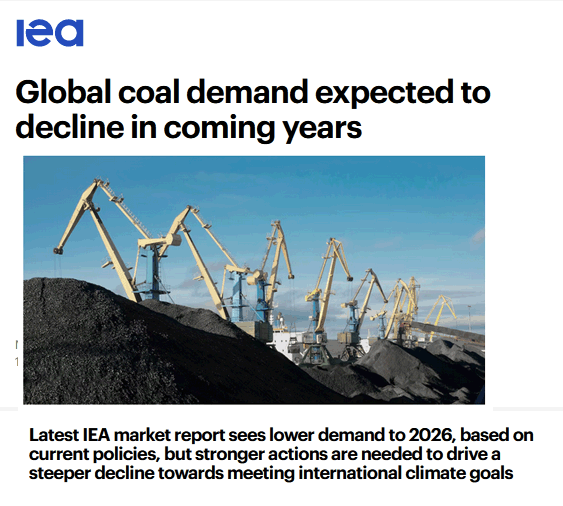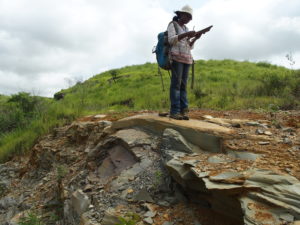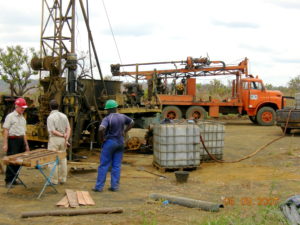by T. Gardner, Mar 10, 2025 in Reuters
Archives de catégorie : energy and fields
Peer-Reviewed Study Confirms Wind And Solar Are Far Costlier Than Coal, Natural Gas
by J. Taylor, Mar 4, 2025 in ClimateChangeDispatch
Renewable power advocates often claim wind and solar are less expensive energy sources than coal, natural gas, and nuclear power. [emphasis, links added]
Such a claim begs the question of why the heavily subsidized Ivanpah solar power facility is going out of business, following a long line of other renewable energy project bankruptcies.
Also, why would most of the world continue to build coal power plants if it is more expensive than wind and solar? The answer is wind and solar are expensive, financial losers. A recent peer-reviewed analysis proves that point.
A recent study, published in the peer-reviewed journal Energy, reports on the full-system levelized cost of electricity generation. The term “full system” is key.
Many entities have assessed what it costs utilities to purchase or produce electricity from existing sources and deliver it to customers.
These cost assessments, however, ignore the intermittency of wind and solar and how intermittency adds substantial costs to the entire electric grid.
The cost assessments also fail to account for how wind and solar projects cannot be built just anywhere and often require new, long, expensive, and inefficient transformation lines to deliver power from the generation locations to consumers. This also adds substantial costs to the overall electric grid.
The peer-reviewed Energy study analyzes these factors and presents an apples-to-apples cost comparison of the full-system cost of wind, solar, coal, natural gas, and nuclear power.
The verdict is devastating to wind and solar power and explains why most of the world prefers to build coal and natural gas power plants.
…
The rising tide of sand mining: A growing threat to marine life
by Michigan State University, Feb 21, 2025 in ScienceDaily
In the delicate balancing act between human development and protecting the fragile natural world, sand is weighing down the scales on the human side.
A group of international scientists in this week’s journal One Earth are calling for balancing those scales to better identify the significant damage sand extraction across the world heaps upon marine biodiversity. The first step: acknowledging sand and gravel (discussed as sand in this publication) — the world’s most extracted solid materials by mass — are a threat hiding in plain sight.
“Sand is a critical resource that shapes the built and natural worlds,” said senior author Jianguo “Jack” Liu, Michigan State University Rachel Carson Chair in Sustainability. “Extracting sand is a complex global challenge. Systems approaches such as the metacoupling framework are essential to untangle the complexity. They can help reveal the hidden cascading impacts not only on the sand extraction sites but also other places such as sand transport routes and sites using sand for construction.”
Sand is the literal foundation of human development across the globe, a key ingredient of concrete, asphalt, glass, and electronics. It is relatively cheap and easily extracted.
…
…
China Still Building Coal Power Plants
by P. Homewood, Feb 14, 2025 in NotaLotofPeopleKnowThat
China last year began construction on projects with the greatest combined coal power capacity since 2015, jeopardising the country’s goal to peak carbon emissions by 2030, according to a report published Thursday.
The world’s second-largest economy is the biggest emitter of the greenhouse gases that drive climate change, but also a renewable energy powerhouse. It plans to reach net zero by 2060.
While coal has been a pivotal energy source in China for decades, explosive growth in wind and solar installations in recent years has raised hopes that the country can wean itself off the dirty fossil fuel.
But according to a report from the Finland-based Centre for Research on Energy and Clean Air (CREA) and Global Energy Monitor (GEM) in the United States, China began construction on 94.5 gigawatts of coal power projects in 2024 — 93 percent of the global total.
Although the country also added a record 356 gigawatts of wind and solar capacity — 4.5 times the European Union’s additions — the uptick in coal power risks solidifying its role in China’s energy mix, the report said.
“China’s rapid expansion of renewable energy has the potential to reshape its power system, but this opportunity is being undermined by the simultaneous large-scale expansion of coal power,” said Qi Qin, lead author of the report and China analyst at CREA.
The rise comes despite a pledge by Chinese President Xi Jinping in 2021 to “strictly control” coal power projects and increases in coal consumption before “phasing it down” between 2026 and 2030.
Coal production has risen steadily in recent years, from 3.9 billion tons in 2020 to 4.8 billion tons in 2024.
“Without urgent policy shifts, China risks reinforcing a pattern of energy addition rather than transition, limiting the full potential of its clean energy boom,” the report said.
https://uk.finance.yahoo.com/news/chinas-2024-coal-projects-threaten-000005109.html
Equinor Cut Green Investment In Half
by P. Homewood, Feb 6, 2025 in NotaLotofPeopleKnowThat
Norwegian energy giant Equinor is halving investment in renewable energy over the next two years while increasing oil and gas production.
Chief executive Anders Opedal said that the transition to lower carbon energy was moving slower than expected, costs had increased, and customers were reluctant to commit to long term contracts.
Mr Opedal told the BBC he was confident that Rosebank – a giant new oil field in the North Sea – would go ahead, despite a recent court ruling that consent had been awarded unlawfully.
He also warned that gas prices could rise next winter as European gas storage levels were lower now than this time last year.
“We are scaling down our investments in renewables and low carbon solutions because we don’t see the necessary profitability in the future,” Mr Opedal said.
It will cut investments in renewables to $5bn over the next two years, down from about $10bn.
It will also drop a target to spend half of its fixed assets budget on renewables and low carbon products by 2030.
By contrast, Equinor will be increasing oil and gas production by 10% over the next two years.
https://www.bbc.co.uk/news/articles/c1jg7k1kjwyo
This is of course part of a much wider trend, as we saw today with Orsted’s decision to call a halt to offshore wind development. Renewable energy is wholly dependent on govt subsidy, which as President has shown is illusionary.
Incredibly the far-left BBC still believe that “Rosebank is not straightforward”
What could not be more straightforward than a British oil field which could supply ultra cheap oil and gas to the country, sustain thousands of well paid jobs, send millions in tax revenues to the govt, provide an element of energy security and actually reduce emissions in comparison with importing the stuff.
Only the British hating BBC could object to that!
BTW
I cannot help but be reminded what the Xi’s useful idiot, Ambrose Evans-Pritchard said last week, when he said that the world’s investors were chasing green energy because that was where the money was!
Dream on, Ambrose!!!!!!!!!!!!!
IEA Report: Global Coal Demand To Hit Record High In 2024, Defying Predictions Of Decline
by R. Bryce , Dec 18, 2024 in ClimateChangeDispatch
The International Energy Agency has been consistent — and consistently wrong — about global coal demand. [emphasis, links added]
In 2015, the Paris-based agency declared, “The golden age of coal in China seems to be over.” That year, it predicted global coal demand would fall to 5.5 billion tons by 2020.
In its 2017 World Energy Outlook, the IEA said, “China remains a towering presence in coal markets, but our projections suggest that coal use peaked in 2013 and is set to decline by almost 15% over the period to 2040.”
In 2020, the agency said, “Looking ahead to 2025, coal demand is expected to flatten.” It continued,
“Unless there are unforeseen developments that significantly boost coal demand in emerging Asian economies and China, it is likely that global coal demand peaked in 2013 at just over 8B tons.”
Wrong. Wrong. And wrong again.
Today, the IEA released its Coal 2024 report, which says global coal use will grow by another 1% this year to an all-time high of 8.77 billion tons.
The agency also reports that:
“coal demand, production, coal-fired generation, and international coal trade will surpass records reached in 2023 to set new all-time records.”
And here’s the key line:
“The power sector has been the main driver of coal demand growth, with electricity generation from coal set to reach an all-time high of 10,700 terawatt-hours (TWh) in 2024.”
Why does this matter? Electricity is the form of energy we crave more than any other. Electricity drives modernity and economic growth.

Germany Urged To Return To Nuclear As Wind And Solar Fail, Prices Soar
by P. Gosselin, Nov 25, 2024 in ClimateChangeDispatch

Germany phased out its entire fleet of nuclear reactors over the past years and hoped to rely on renewable energies, claiming they were cheaper and cleaner. [emphasis, links added]
However, the transition has not gone smoothly as grid revamping has not kept up and prices for wind and solar power have made German electricity among the most expensive worldwide.
At the UN Climate Change Conference in Baku, Rafael Grossi, head of the International Atomic Energy Agency (IAEA), has warned that: “Germany can no longer turn its back on nuclear power and that a reorientation of energy policy is necessary. The government must reopen the debate on nuclear power.”
“Countries that have nuclear energy want more of it. And many that don’t have any want it,” said Grossi.
“The timing of his comments is no coincidence. Germany’s economy is suffering from energy problems while the government is consumed with internal disputes,” comments Blackout News.
“The political focus has recently been on the disputes within the coalition government, while the electricity market has continued to show new weaknesses.”
Blackout News describes how the prices of electricity “exploded” in early November during a period of calm winds and no sunshine.
This forced Germany to fall back on gas and coal (energy sources that the government is currently working to phase out as well).
“Fossil fuels supplied 71% of Germany’s electricity at the beginning of November – a figure that has not been reached for over a decade.”
Read the entire article here (German).
Florida’s Fossil Fuel Renaissance: Why the Sunshine State is Laughing Off Climate Hysteria
by C. Rotter, Aug 24, 2024 in WUWT
Maguire’s article, which is as much a lament as it is a piece of journalism, paints Florida as the villain in a story where the rest of the country is the hero, gallantly marching toward a green utopia. But here’s the kicker: Florida’s doing just fine, and the people who live there know it. Let’s break down the absurdity of the climate scolds and see why Florida’s energy strategy is not only sensible but downright smart.
Fossil Fuels: The Workhorse of Florida’s Energy Grid
According to Maguire, Florida’s reliance on fossil fuels—gasp—has actually increased in 2024, a move that he seems to think is tantamount to environmental heresy. “Florida reverses energy transition by cranking fossil fuel use,” his headline wails, as if the state had suddenly decided to reverse gravity. But let’s get real: fossil fuels, particularly natural gas, are the backbone of Florida’s energy grid for a very simple reason—they work. When the summer sun is beating down, and everyone’s cranking up the AC, no one wants to hear that their power has been cut because the wind isn’t blowing or a cloud passed over a solar farm.
Maguire points out that over 80% of Florida’s electricity has come from fossil fuels since the beginning of June, the highest share in over three years. He compares this to the national average of 62.4% and Texas’s 62%, as if this somehow proves Florida is an outlier in the worst way. But let’s be honest: these are numbers that should make Floridians proud. While the rest of the country toys with unreliable renewables, Florida is ensuring that its citizens have a reliable, affordable energy supply.
The Reality of Renewable Energy
Renewables sound great on paper, don’t they? Free energy from the sun and wind—what’s not to love? But here’s where the rubber meets the road: renewables aren’t ready for prime time, especially not in a state like Florida, where reliability isn’t just a luxury, it’s a necessity. Imagine the chaos if millions of Floridians were left in the sweltering heat because the sun decided to take a day off. Florida’s summer is no joke, and neither is the demand for electricity. The state’s grid needs to be as robust as a linebacker, not as fragile as a flower.
And it’s not like Florida has completely ignored renewable energy. Florida Power & Light (FPL), the largest utility in the state, is leading a solar charge, aiming to install 30 million solar panels by 2030. But here’s the kicker—Florida’s leaders know that solar is a supplement, not a substitute. That’s why they haven’t thrown the baby out with the bathwater and abandoned fossil fuels.
…
Yet More Reasons Why Green Hydrogen Is Going Nowhere
by F. Menton, Aug 28, 2024 in WUWT
In the fantasy of the zero-emissions electricity future, there will either be regular devastating blackouts, or something must back up the intermittent wind and solar generation. In New York we call that imaginary something the “DEFR” (Dispatchable Emissions Free Resource). But what is it? Nuclear has been blocked for decades, especially in the blue jurisdictions that are most aggressively pursuing the wind/solar future. Batteries are technologically not up to the job, and also wildly too expensive. That leaves hydrogen. Anybody with another idea, kindly speak up.
I’ve had several posts discussing the question of whether hydrogen could do this job, for example this one on February 14, 2024, and this one on July 20. Those posts focused on the initial cost of making hydrogen by electrolysis from water. That cost turns out to be a multiple of the cost of producing natural gas by drilling into rock (for comparable energy content). From time to time I have alluded to other potential problems with having hydrogen replace natural gas in the electricity system — things like leaks, explosions, and the need for an entire new infrastructure of pipelines and trucks to carry the stuff and power plants to burn it. But until now I haven’t found a detailed study on just how bad these additional problems might be.
Now comes along an August 18 article in a peer-reviewed journal called Energy Science & Engineering, with the title “A review of challenges with using the natural gas system for hydrogen.” The article was linked on August 23 by Paul Homewood at the Not a Lot of People Know That site, and then further linked by Watts Up With That on August 24.
The lead author is a guy named Paul Martin. Unusually for an article in such a journal, no academic affiliation is given for Mr. Martin. Looking him up on LinkedIn, I find that he is not an academic, but rather identifies himself as a “chemical process development expert” who has spent “years in industry,” and is currently with Spitfire Research, Inc., which in turn states that it specializes in “consulting for a decarbonized future.” Mr. Martin then identifies several of his co-authors on the paper as a “team of people at the Environmental Defense Fund.” That information may well color your perception of what Martin, et al., have to say in their paper.
…
Natural Gas Industry’s Smear of Coal Is False and Self-Defeating
by G. Wrightstone, July 22, 2024 in RealClearEnergy
Smearing coal has become a marketing strategy of a natural gas industry that embraces pseudoscientific views of coal combustion as being hazardous.
In so doing, gas supporters give credence to a fallacious regulatory regime of the Environmental Protection Agency (EPA), which erroneously classifies carbon dioxide as a pollutant and assigns health effects to low-level pollution without scientific proof. To boot, a false representation of coal, oil and natural gas as environmental bogeymen is perpetuated.
Perhaps the most enthusiastic user of this foolish ploy is Toby Rice, CEO of Pittsburgh-based EQT Corp., who introduced two years ago a global plan to replace coal with liquefied natural gas. Promoting his product as a “decarbonizing force” in June at a RealClearEnergy conference, the head of the country’s largest gas producer (check the video link above to see his part), said:
“What we would like to do at EQT … is focus people on a really practical solution that will allow us to provide energy security for the world and address people’s concerns over global emissions. And that path is very simple: transition the world from coal to gas.”
Although natural gas emits less carbon dioxide than coal when burned, the underlying premise of Rice’s pitch rests on the popular myth that CO2 emissions will overheat the planet. The organization we lead, the CO2 Coalition, has overwhelming evidence from top scientists showing that increasing atmospheric carbon dioxide not only poses no danger but is beneficial to plant growth and crop production.
…
The world is using more oil, coal and gas than ever before and will use more. Net Zero is dead
by P. Homewood, June 14, NotaLotofPeopleKnowThat
A recent flurry of forecasts offers us a range of different views on what’s happening to the global demand for, and use of, crude oil. One thing seems to be clear, however: the chances of net zero carbon emissions in the near term – ie, by 2050 – are basically zero.
The year so far has been a bit of a rollercoaster ride in this realm of uncertainty, with projections and forecasts more volatile than the market itself. Crude prices have remained relatively strong despite various occurrences across Europe and the Middle East that would have resulted in major upsets in decades past.
One major point of consensus related to global oil demand growth is the expectation that it will continue to be robust, driven by a combination of factors including economic recovery, increased travel, and surging industrial activity in non-OECD nations.
The only major body not seeing continued, massive growth is the International Energy Agency (IEA), which revised its numbers this week to predict that crude demand will rise by just 1 million barrels per day (bpd) next year and will (at last!) peak “towards the end of this decade” at 106 million bpd, up from 102 million at the moment. The IEA expects this growth to be led by non-OECD countries, particularly China and India. The IEA and others have highlighted the importance of these regions in driving global oil demand.
The IEA, which is funded by 31 industrialized nations through a dues structure, says that it believes growth in demand from India, China and elsewhere will be gradually outweighed by the expected rollout of electric vehicles and other green technologies. However, one should note that the agency has been shifting for a long time from being an analytical organisation to being essentially a green campaigning one, and its forecasts nowadays are as much attempts to influence markets as to genuinely predict them.
In contrast to the IEA, the US Energy Information Administration (EIA) raised its 2024 global oil demand growth forecast to 1.1 million barrels per day, up from its previous estimate of 900,000 bpd. This revision is based on expectations for travel and tourism in the second half of the year. EIA projects even stronger demand growth for 2025 of 1.5 mbpd, again clashing with the IEA which sees just 1 mbpd that year, with non-OECD countries accounting for most of the growth. The US federal agency also raised its projection for crude prices to rise to an average of $87/barrel in Q4 2024 based on the rising demand.
…
Old King Coal at COP28: Uninvited Guest or Star of the Show?
by T. Coclanis, Dec 23, 2023 in WUWT
Last Friday, just two days after the Dubai COP28 meeting ended, a report published by the International Energy Agency (IEA) stated that global coal demand will set another new record this year. Although coal use in the West is falling, demand in developing economies “remains very strong, increasing by 8% in India and by 5% in China in 2023 due to rising demand for electricity and weak hydropower output.”
Perhaps the best preamble to COP28 was delivered by India’s Power Minister, R. K. Singh. On November 6th, he stated “There is going to be pressure on nations at COP-28 to reduce coal usage. We are not going to do this… we are not going to compromise on availability of power for our growth, even if it requires that we add coal-based capacity”. India plans an additional 30 gigawatts (GW) of coal-fueled power generating capacity in addition to the existing 50 GW and plants already under construction. It is also set to increase coal production by 60% by 2030, from its current level of 1 billion tons, to ensure ample supply for its thermal power plants.
…
…
Natural H2 Emissions in Colombian Ophiolites: First Findings
by A. Carillo Ramirez et al., Dec 2023 in MDPI/Springer
Abstract
The exploration of natural H2 or white hydrogen has started in various geological settings. Ophiolitic nappes are already recognized as one of the promising contexts. In South America, the only data available so far concerns the Archean iron-rich rocks of the Mina Gerais in Brazil or the subduction context of Bolivia. In Colombia, despite government efforts to promote white hydrogen, data remain limited. This article introduces the initial dataset obtained through soil gas sampling within the Cauca-Patia Valley and Western Cordillera, where the underlying geology comprises accreted oceanic lithosphere. In this valley, promising areas with H2 potential were identified using remote sensing tools, in particular vegetation anomalies. The Atmospherically Resistant Vegetation Index (ARVI) appears to be well adapted for this context and the field data collection confirmed the presence of H2 in the soil in all pre-selected structures. The valley undergoes extensive cultivation, mainly for sugar cane production. While H2emissions lead to alterations in vegetation, unlike reports from other countries, they do not result in its complete disappearance. Soil gas measurements along the thrusts bordering the Cauca Valley also show high H2 content in the fault zones. In the valley, the presence of sedimentary cover above the ophiolites which are presumably the H2generating rocks, which addresses the possible presence of reservoirs and seals to define potential plays. Drawing parallels with the Malian case, it could be that the intrusive element could serve as seals.…
Keywords:Colombia; natural H2; Cauca-Patia Valley; ophiolites; vegetation index
More coal burned on Earth in 2023 than ever before in human history
by Jo Nova, Dec19, 2023 in JoNova
The best kept secret in the world is that humans are using more coal than ever
So much for the “stranded dead asset”. In 2022 the world set a new all-time record for coal use — reaching 8.4 billion tons. In 2023, despite all the Net Zero billions in spending, despite the boom in windmills and solar panels, global demand for coal will top 8.54 billion tons.
The IEA is the “International Energy Agency” — supposedly, the impartial servant of 31 nations worth of taxpayers. Yet they decided to ignore the world record and instead tell us how coal is set to decline. It’s what they think the taxpayers need to hear. Their press release:
…
Evolution of the world fuel intensities
by S. Furfari, Dec 15, 2023 in ScienceClimatEnergie
A benchmark that explains why green NGOs want to promote energy sobriety
The fashion for saving energy, which assumes that human behaviour can compensate for the inelasticity of energy demand, is not new. Only the name is. In 1924, when US President Calvin Coolidge proposed saving oil because he had been told that reserves would soon be exhausted, he devised a strategy called energy conservation. Though compassionate and generous, these methods failed to reverse the continuing growth in energy demand. Energy consumption, and oil consumption in particular, continues to rise as the world’s population grows and more people need to eat and work, i.e. consume energy. It is the task of industry and engineers to make processes and products more efficient. It has always been an ongoing quest. The Romans used massive stones to build their bridges, creating amazing monuments. Today, a similar function is performed with much lighter materials. Efficiency is normal behaviour in human activities, including the production, conversion and consumption of energy.
…
Global CO2 emissions rise through 2050 in most IEO2023 cases
by EIA_ Today in Energy, Nov 30, 2023
We project that global energy-related CO2 emissions from consumption of coal, liquid fuels, and natural gas will increase over the next 30 years across most of the cases we analyzed in our International Energy Outlook 2023(IEO2023).
By 2050, energy-related CO2 emissions vary between a 2% decrease and a 34% increase compared with 2022 in all cases we modeled. Growing populations and incomes increase fossil fuel consumption and emissions, particularly in the industrial and electric power sectors. These trends offset emissions reductions from improved energy efficiency, lower carbon intensity of fuel mix, and growth in non-fossil fuel energy.
IEO2023 analyzes long-term world energy markets in 16 regions through 2050. We studied seven cases that explore differing assumptions of economic growth, crude oil prices, and technology costs. These cases consider only the international laws and regulations adopted through March 2023 and rely on the U.S. projections published in the Annual Energy Outlook 2023 (AEO2023), which assumed U.S. laws and regulations as of November 2022.
Coal
Across sectors, the highest growth in global coal consumption through 2050 occurs in the electric power sector. Although zero-carbon technologies account for the most growth in electricity capacity and generation, we expect coal-fired generators to continue to operate. Across all cases, China and India account for about two-thirds of the world’s coal consumption between 2022 and 2050. Although China is currently the largest coal consumer, we project its coal consumption to decline by 18% between 2022 and 2050. Coal consumption in India nearly doubles over the same projection period.Liquid fuels
We project global consumption of liquid fuels—which include gasoline, diesel, and biofuels—will increase through 2050. Across all sectors, the largest share and the fastest growth in liquid fuels consumption is in industrial applications, such as chemical production. Increased liquid fuels consumption in the industrial sector is partially offset by declining liquid fuels consumption in the transportation sector as adoption of electric vehicles (EV) grows. Regionally, we project the United States, China, and Western Europe to remain the top liquid fuels consumers, even though fuel consumption in these regions either declines or plateaus by the mid-2030s due to government policies and growing EV adoption. India has the fastest projected growth in liquid fuels consumption, more than doubling across all cases.Natural gas
We project natural gas consumption will increase in the electric power and industrial sectors through 2050. In the cases we modeled, the electric power sector continues to rely on existing natural gas-fired plants despite growth in zero-carbon electricity generation. In the industrial sector, increased production of basic chemicals in countries such as the United States propels an increase in natural gas consumption, both as fuel and petrochemical feedstock. Natural gas demand also grows in the Middle East because of the fuel’s role in producing and processing natural gas and oil for export. The United States is projected to remain the world’s top natural gas consumer throughout the projection horizon, but the Middle East shows significant growth during that timeframe and approaches U.S. consumption by 2050, ranging from a 29% to 54% growth rate from 2022 to 2050 in the IEO2023 cases.Principal contributors: Kevin Nakolan, Michelle Bowman
COP28: India doubles down on right to increase coal power and CO2 emissions
by P. Homewood, Nov 30, 2023 in NotaMotofPeopleKnowThat
“India cannot survive without coal as it has no other options.”
India has committed itself to greater coal-fired generation use ahead of the UN Climate Change Conference in Dubai and is set to voice developing nations’ demands for a greater share of the carbon emissions budget at the Nov. 30-Dec. 12 summit.
India is the world’s third-largest emitter of carbon dioxide after China and the US, with a booming economy driving electricity demand up 9.6% in fiscal year 2023.
“There will be pressure again on those countries who use coal,” RK Singh, minister of power and new and renewable energy, said Nov. 6. “Our point of view is that we are not going to compromise with the availability of power for growth.”
Public sector power companies are constructing about 27 GW of thermal plants — almost all coal — but this is insufficient, according to Singh. The country needs “at least 80 GW” of new capacity to meet future demand, he said.
India generated 149.66 TWh of electricity in September, of which 108.70 TWh, or 73%, was coal-fired, data from Central Electricity Authority showed. The coal-fired figure was up 17% year on year.
S&P Global Commodity Insights forecasts the share of coal-fired generation in India’s power mix will rise to 77% by 2025 before falling to 71% in 2030 and 52% by 2050.
“India cannot survive without coal as it has no other options,” said Rashika Gupta, research and analysis director at S&P Global. “Nuclear and hydro take a decade to build, gas is not available, and LNG is very expensive. India’s forte has always been coal — it knows how to operate it, and there is indigenous capacity to build it.”
Full story
…
China’s Coal Power Building Plans Are Still at a Frenzied Pace
by D. Murtaugh, Apr 24, 2023 in Bloomberg
Provincial governments gave the green light to at least 20.5 gigawatts of new coal in the first quarter, topping the 18.5 gigawatts for all of 2021, Greenpeace said in a new research report. Approvals began to soar last year, to at least 90.7 gigawatts, after a series of economy-crippling power shortages, according to the study.
Greenpeace’s report is the latest in a series of research findings and industry comments highlighting Beijing’s plan to rely on its mainstay fuel as a backstop for reliable and affordable power amid rising global fuel prices and the development of intermittent renewable generation. The government is also leaning on miners to boost coal output to record levels to avoid a reliance on foreign supplies.
“The 2022 coal boom has clearly continued into this year,” said Xie Wenwen, Greenpeace East Asia climate and energy campaigner. Reasons given by governments in approval documents included ensuring safe energy supply, meeting heating demand and stimulating local economic development, Xie said.
…
see also here : Coal in India
Australia warned of ‘over-mining’ risk in race to secure minerals needed for clean energy
Claim: A Majority of Voters believe Climate Change is a False Religion
by E. Worrall, Mar 15, 2023 in WUWT
…
…
But just maybe the tide is turning.
A lot of things have been going wrong for wind and solar fanatics lately. Biden, arguably the President with the greatest record of subsidizing unreliable wind and solar in America’s history, had his chance to bring down energy prices with his solar panels and wind turbines. Instead, he delivered the spectacle of the US Secretary of State crawling to the Saudis, begging for access to their oil, oil which could have been delivered by the Keystone Pipeline and other petroleum projects the Biden administration sabotaged.
In Britain and Germany – energy prices. Chancellor Olaf Scholz of Germany has implausibly promised an energy miracle, but Britain and Europe have already waited a long time for the promised reward for all the hardship they have endured and the trillion Pounds and Euros spent over the last few decades.
The measures Britain and Germany have taken to avert catastrophe in the face of Russian gas supply disruption, and the utter failure of the climate alarmist’s energy programmes to deliver, are beyond embarrassing. Germany is bulldozing villages, old growth forests, even a wind farm to dig up coal to avoid further deindustrialization caused by their maniacal reliance on intermittent wind and solar. Britain deferred decommissioning her decrepit coal plants. Just as well, Britain needed those coal plants again just last week.
In Australia, Prime Minister Albanese, who won on the promise of a substantial drop in energy prices, well that promise is now looking pretty shaky. Household energy prices are set to rise 20%, 30% next year?Who knows. What we do know, is it will be a lot – and the dirt cheap coal power which bring down prices is scheduled to be shut down.
With the promises of the climate religion wearing thin, and climate concern faltering in the face of mortgage stress and soaring energy bills, perhaps this Rasmussen poll is what it appears to be – an early indication of a sea change in public opinion concerning climate change and climate action.
World Energy: There Is No Energy Transition, Just Unreliable Energy Addition
by L. Weijers, Mar 12, 2023 WillemPost
As Liberty Energy CEO Chris Wright explained in his viral video a few weeks ago, dishonest terminology surrounds the climate debate. One of these terms is “Energy Transition”.
The term’s use gives the impression that there exists a quick, easy and scalable alternative to eliminate fossil fuel use without serious impact on people.
Current primary energy distribution, by source, and forecasts by organizations, such as the EIA in their International Energy Outlook 2021, show that this “energy transition” is non-existent.
SEE URL FOR A BETTER RESOLUTION GRAPH
https://wattsupwiththat.com/2023/03/12/there-is-no-energy-transitio…
Also see Liberty’s ESG report on Bettering Human Lives,
No present quantity of primary energy generated by oil or gas or coal is currently replaced by renewables.
A couple of headlines from the Liberty report that you don’t hear a lot:
- Global primary energy use is about to grow by almost 50% between 2020 – 2050, due to impoverished people rising from poverty;
- Oil consumption rises in all EIA scenarios. In their “Reference Scenario”, oil consumption rises at about 1 million barrels of oil per year for the next 30 years, almost the same steady yearly increase of the last 5 decades;
- Natural gas consumption will continue to growth through 2050.
The reason for this growth is simple: fossil fuels are abundant, cheap and efficient to provide reliable and dense energy at scale.
They have helped to generate a quality-of-life revolution for a portion of humanity, THE GOLDEN BILLION.
people in poverty who have missed out on this blessing rightfully want what you and I already have.
Sadly, few entities report on this blessing we take for granted.
Good news about renewables is breaking records, however, much of it is bogus.
There are marketing strategies/ruses renewable advocates have used that make it appear as if renewables have a larger market share than in reality:
…
China leans on coal amid energy security push
by A. Hayley, Mar 6, 2023 in Reuters
BEIJING, March 5 (Reuters) – China’s state planner underlined a greater role for coal in its power supply on Sunday, saying the fossil fuel would be used to improve the reliability and security of its energy system.
Soaring global energy prices following Russia’s invasion of Ukraine and domestic supply disruption have prompted Beijing to step up its focus on energy security in recent years.
The world’s second-biggest economy relied on coal to generate 56.2% of its electricity last year, according to data from the National Bureau of Statistics, but has significantly boosted its use of natural gas and renewable energy in recent years to lower carbon emissions.
…
China approves biggest expansion in new coal power plants since 2015
by P. Homewood, Feb 27, 2023 in NotaLotofpeopleKnowThat
When will Western leaders realise they have been hoodwinked by China?
China approved the construction of another 106 gigawatts of coal-fired power capacity last year, four times higher than a year earlier and the highest since 2015, research shows.
Over the year, 50GW of coal power capacity went into construction across the country – up by more than half compared with the previous year – driven by energy security considerations, the Centre for Research on Energy and Clean Air (CREA) and Global Energy Monitor (GEM) said on Monday.
“The speed at which projects progressed through permitting to construction in 2022 was extraordinary, with many projects sprouting up, gaining permits, obtaining financing and breaking ground apparently in a matter of months,” said GEM analyst Flora Champenois.
The amount of new capacity connected to the grid had slowed in recent years after a decline in new approvals over the 2017-2020 period, but it is set to rebound over the next few years, driven by concerns about power shortages.
Many of the newly approved projects were identified as “supporting” baseload capacity designed to ensure the stability of the power grid and minimise blackout risks, the CREA-GEM report said.
However, many were being built in regions that already had a clear capacity surplus, and power supply problems would be better addressed by improving grid reliability and efficiency, the authors said.
China suffered a wave of blackouts in September 2021 as a result of coal supply shortages, cutting off thousands of homes and factories. A long drought last year also saw a dramatic drop in hydropower generation and the rationing of electricity.
…
New geological study proves that the green energy movement is impossible to achieve
by R.A. Bishop, Feb 17, 2023 in LifeSite.AmericanThinker
…
…
The comprehensive study found that the current estimated metal reserves are woefully deficient in almost every category. The table below lists base and rare earth metals requirements to build the new grid and E.V.s. Deficits are yellow-highlighted. For example, copper is an integral part of a high-voltage grid system, coming up short by a shocking 3.7 billion tons. Can we dig enough open mile-deep ore pits to meet that shortfall? Improbable.

Table 1 Below is the study’s table estimating the years to produce the required metals at the current production rates. For example, lithium would take almost 10 millennia to achieve. In addition, these scarce minerals must be mined, transported, and processed, relying exclusively on fossil fuels, which would create more carbon emissions and deplete hydrocarbon reserves.
…
India to use emergency law to maximise coal power output -sources
by S. Singh, Jan 30, 2023 in Reuters

NEW DELHI, Jan 30 (Reuters) – India plans to use an emergency law next month to force power plants that run on imported coal to maximise output, two government sources told Reuters on Monday, in preparation for expected record consumption this summer.
Many Indian coal-fired plants, including those those owned by Adani Power (ADAN.NS) and Tata Power (TTPW.NS) in India’s western Gujarat state, have not operated at full capacity in the recent years because they have found it difficult to compete with power generated from cheap domestic coal.




































































